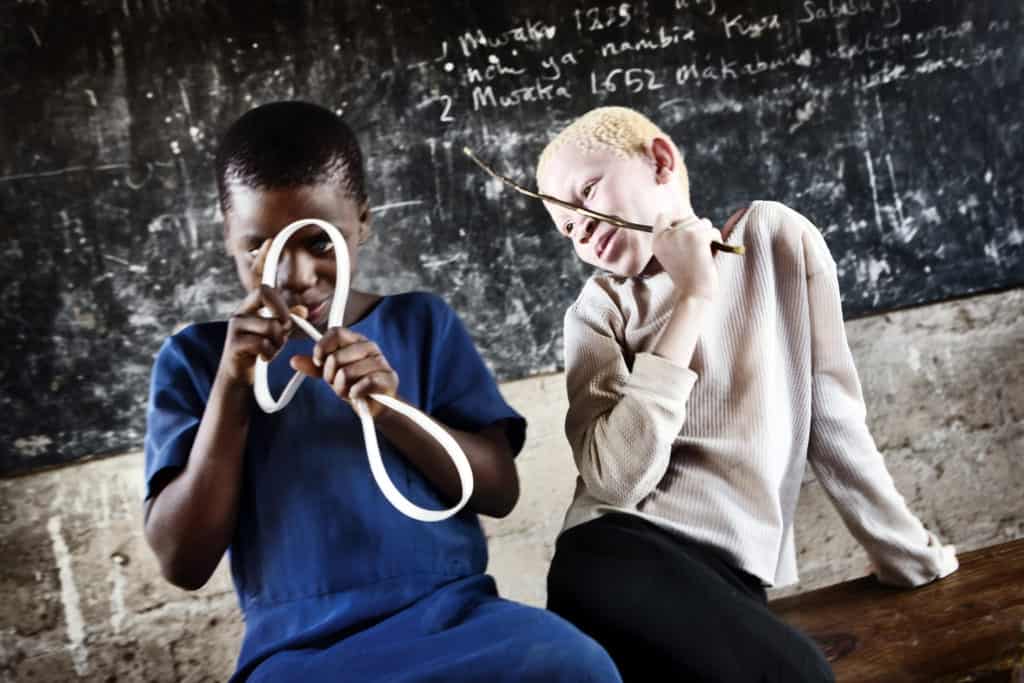The Hunted
Daniel Rodrigues, NY Times, May 5, 2017

Dec 17, 2009 – Frankfurt, Tanzania – Selina (R) and her friend Mwanaidi playing in Tanzania, Africa. The ten-year-old girl belongs to a minority of approximately 150 000 albinos in Tanzania. Because of their white skin, albinos are threatened to become victims of cruel ritual murders. A wide-spread superstitiousness claims that an albino’s blood contains magical powers and their body parts are said to be talismans. (Credit Image: © Johan Baevman/DPA/ZUMApress.com)
One day in October 2015, Electerio João’s brother-in-law called him up and asked him to come “work and earn money.” Mr. João, who was 22 at the time, welcomed the opportunity. He was living with his mother in a small mud-brick house in the village of Namina in northern Mozambique. He needed the cash.
But he quickly realized that he was going to be the source of cash, not labor. His brother-in-law, working with three of his friends, tied up Mr. João with a rope and took him to the side of a main road, where they planned to sell him for his body parts.
Mr. João has albinism. Superstition in Mozambique and nearby countries like Malawi and Tanzania holds that if you have a piece of albinism on you — in the form of a bone or piece of skin — you’ll have luck and money. In Mozambique a person with albinism can be worth $4,000 to $75,000.
{snip}
Albinos’ graves have been desecrated, with corpses dug up for talismans. Those who aren’t abducted or killed face discrimination and live in fear.
{snip}
Word of Mr. João’s sale made its way to some buyers. After he and his captors spent several hours waiting by the side of the road, the would-be purchasers arrived. Luckily, they were from the police. Mr. João was released; his brother-in-law and his co-conspirators were arrested. It was the first time that Mozambique’s police had caught albino smugglers in the act. Mr. João is still afraid, though, as were all of the albinos and their families I spoke with and photographed in Mozambique and Malawi.















